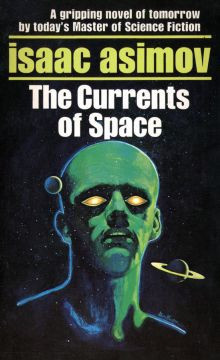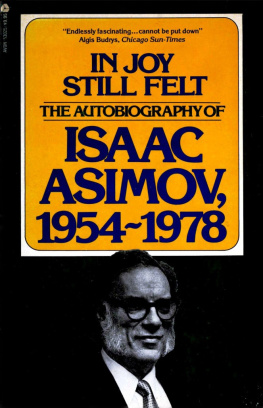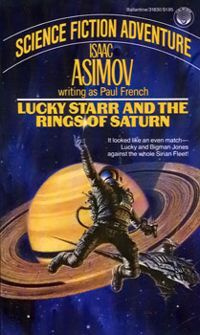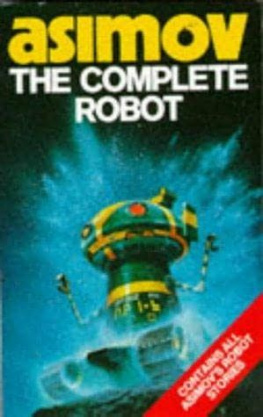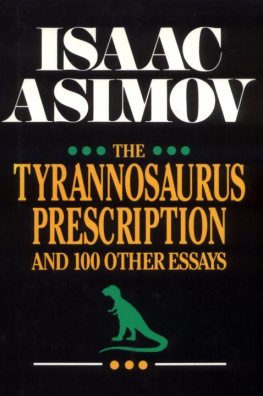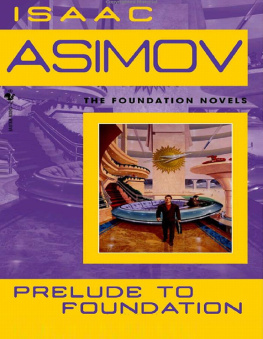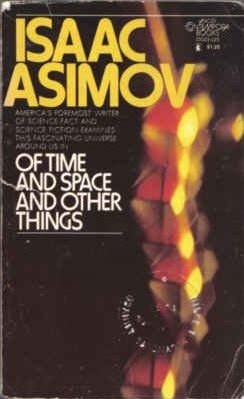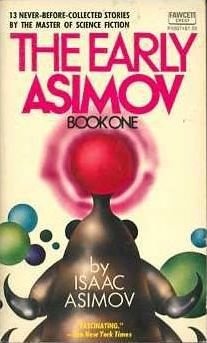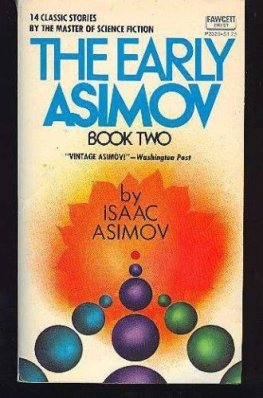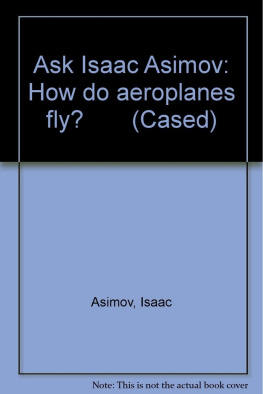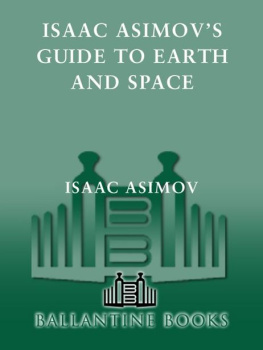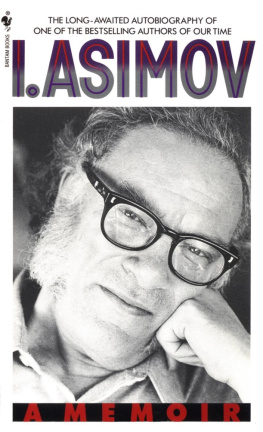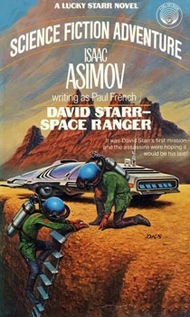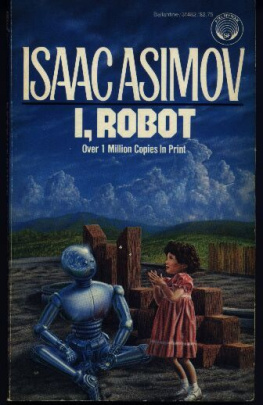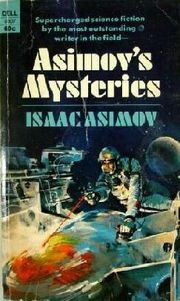Isaac Asimov
The Currents Of Space
All of the characters in this book are fictious,
and any resemblance to actual persons, living or dead,
is purely coincidental.
To David, who took his time coming, but was worth waiting for
Prolog
A Year Before
TBE MAN from Earth came to a decision. It had been slow in coming and developing, but it was here.
It had been weeks since he had felt the comforting deck of his ship and the cool, dark blanket of space about it. Originally, he had intended a quick report to the local office of the Interstellar Spatio-analytic Bureau and a quicker retreat to space. Instead, he had been held here.
It was almost like a prison.
He drained his tea and looked at the man across the table. He said, "I'm not staying any longer."
The other man came to a decision. It had been siow in coming and developing, but it was here. He would need time, much more time. The response to the first letters had been nil. They might have fallen into a star for all they had accomplished.
That had been no more than he had expected, or, rather, no less. But it was only the first move.
It was certain that, while fut~ire moves developed, he could not allow the man from Earth to squirm out of reach. He fingered the smooth black rod in his pocket.
He said, "You don't appreciate the delicacy of the problem."
The Earthman said, "What's delicate about the destruction of a planet? I want you to broadcast the details to all of Sark; to everyone on the planet."
"We can't do that. You know it would mean panic."
"You said at first you would do it."
"I've thought it over and it just isn't practical."
The Earthman turned to a second grievance. "The representative of the I.S.B. hasn't arrived."
"I know it. They are busy organizing proper procedures for this crisis. Another day or two."
"Another day or two! It's always another day or two! Are they so busy they can't spare me a moment? They haven't even seen my calculations."
"I have offered to bring your calculations to them. You don't want me to."
"And I still don't. They can come to me or I can go to them." He added violently, "I don't think you believe me. You don't believe Florina will be destroyed."
"I believe you."
"You don't. I know you don't. I see you don't. You're humoring me. You can't understand my data. You're not a Spatio-analyst. I don't even think you're who you say you are. Who are you?"
"You're getting excited."
"Yes, I am. Is that surprising? Or are you just thinking, Poor devil, Space has him. You think I'm crazy."
"Nonsense." -
"Sure you do. That's why I want to see the I.S.B. They'll know if I'm crazy or not. They'll know."
The other man remembered his decision. H~ said, "Now you're not feeling well. I'm going to help you."
"No, you're not," shouted the Earthman hysterically, "because I'm going to walk out. If you want to stop me, kill me, except that you won't dare. The blood of a whole world of people will be on your hands if you do."
The other man began shouting, too, to make himself heard. "I won't kill you. Listen to me, I won't kill you. There's no need to kill you."
The Earthman said, "You'll tie me up. You'll keep me here. Is that what you're thinking? And what will you do when the I.S.B. starts looking for me? I'm supposed to send in regular reports, you know."
"The Bureau knows you're safely with me."
"Do they? I wonder if they know I've reached the planet at all? I wonder if they received my original message?" The Earthman was giddy. His limbs felt stiff.
The other man stood up. It was obvious to him that his decision had come none too soon. He walked slowly about the long table, toward the Earthman.
He said soothingly, "It will be for your own good." He took the black rod from his pocket.
The Earthman croaked, "That's a psychic probe." His words were slurred, and when he tried to rise, his arms and legs barely quivered.
He said, between teeth that were clenching in rigor, "Drugged!"
"Drugged!" agreed the other man. "Now look, I won't hurt you. It's difficult for you to understand the true delicacy of the matter while you're so excited and anxious about it. I'll just remove the anxiety. Only the anxiety."
The Earthman could no longer talk. He could only sit there. He could only think numbly, Great Space, I've been drugged. He wanted to shout and scream and run, but he couldn't.
The other had reached the Earthman now. He stood there, looking down at him. The Earthman looked up. His eyeballs could still move.
The psychic probe was a self-contained unit. Its wires needed only to be fixed to the appropriate places on the skull. The Earthman watched in panic until his eye muscles froze. He did not feel the fine sting as the sharp, thin leads probed through skin and flesh to make contact with the sutures of his skull bones.
He yelled and yelled in the silence of his mind. He cried, No, you don't understand. It's a planet full of people. Don't you see that you can't take chances with hundreds of millions of living people?
The other man's words were dim and receding, heard from the other end of a long, windy tunnel. "It won't hurt you. In another hour you'll feel well, really well. You'll be laughing at all this with me."
The Earthman felt the thin vibration against his skull and then that faded too.
Darkness thickened and collapsed about him. Some of it never lifted again. It took a year for even parts of it to lift.
1. The Foundling
Ruc put down his feeder and jumped to his feet. He was trembling so hard he had to lean against the bare milk-white wall.
He shouted, "I remember!"
They looked at him and the gritty mumble of men at lunch died somewhat. Eyes met his out of faces indifferently clean and indifferently shaven, glistening and white in the imperfect wall illumination. The eyes reflected no great interest, merely the reflex attention enforced by any sudden and unexpected cry.
Rik cried again, "I remember my job. I had a job!"
Someone called, "Shoddop!" and someone else yelled, "Siddown!"
The faces turned away, the mumble rose again. 131k stared blankly along the table. He heard the remark, "Crazy Rik," and a shrug of shoulders. He saw a finger spiral at a man's temple. It all meant nothing to him. None of it reached his mind.
Slowly he sat down. Again he clutched his feeder, a spoonlike affair, with sharp edges and little tines projecting from the front curve of the bowl, which could therefore with equal clumsiness cut, scoop and impale. It was enough for a millworker. He turned it over and stared without seeing at his number on the back of the handle. He didn't have to see it. He knew it by heart. All the others had registration numbers, just as he had, but the others had names also. He didn't. They called him Rik because it meant something like "moron" in the slang of the kyrt mills. And often enough they called him "Crazy Rik."
But perhaps he would be remembering more and more now. This was the first time since he had come to the mill that he had
Rik was stirred by the memory. He said, "Let's go to the fields, Lona."
"It's late."
"Please. Just outside town."
She fumbled at the thin money pouch she kept between herself and the soft blue leather belt she wore, the only luxury of dress she allowed herself.
Rik caught her arm. "Let's walk."
They left the highway for the winding, dustless, packed-sand roads half an hour later. There was a heavy silence between them and Valona felt a familiar fear clutching at her. She had no words to express her feelings for him, so she had never tried.
Next page
